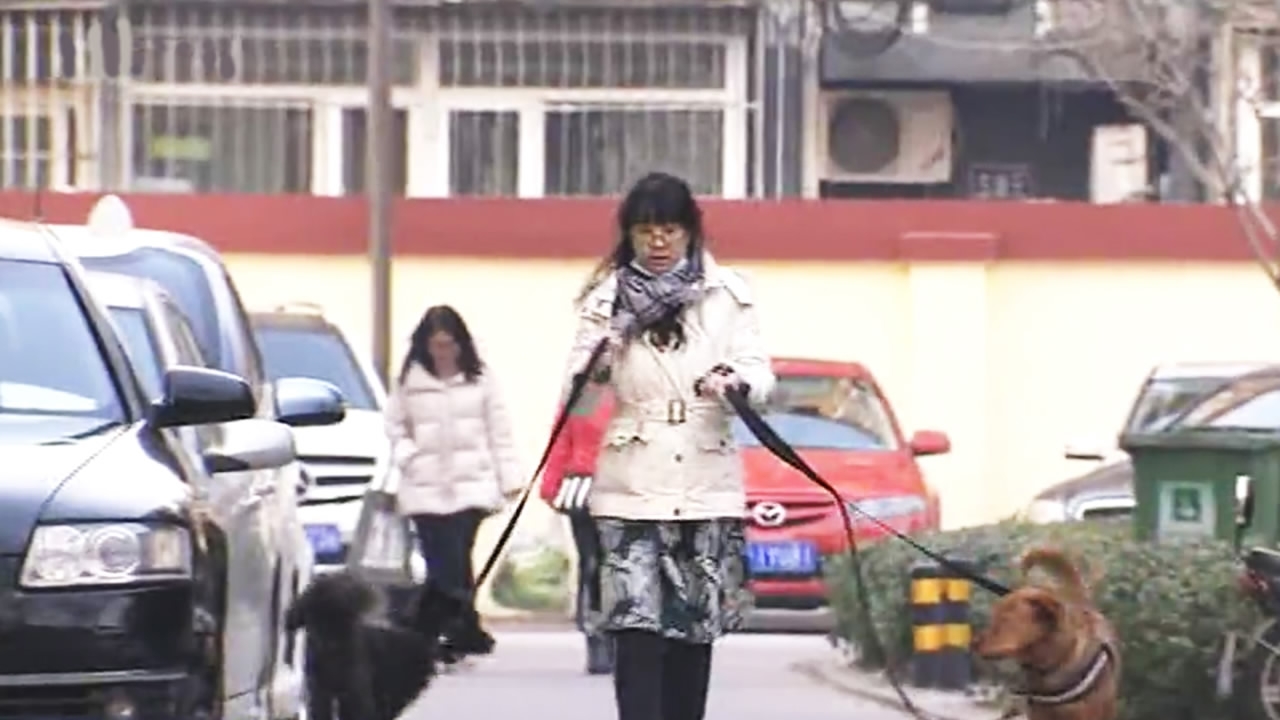
China
22:25, 22-Nov-2017
Individuals step up stray animal rescue efforts in Beijing
By Li Jianhua

Animal protection efforts in China are growing, particularly among the country's younger people.
Current statistics show that in the cities of Beijing and Tianjin alone, there are an estimated 1.3 million stray dogs and cats.
And while international NGOs are playing their part in igniting China's animal movement, local groups and individuals are increasingly taking the lead.
Three days a week, animal rescue volunteer Li Yuan comes to check on her "babies." To make sure these stray dogs which she brought back from Tibet can live through the cold winter, Li rents a place in the Beijing suburbs.

Li Yuan, an animal rescue volunteer /CGTN Photo
Li Yuan, an animal rescue volunteer /CGTN Photo
It's been nearly 15 years since she took home her first stray animal and for her, they are family.
Although where the dogs are housed is two hours via subway from her work, Li likes to spend as much time as possible with them.
"I've been working as an animal rescue volunteer for more than 10 years. To be honest, I feel worn out sometimes, but I have to and must carry on. I hope people from all walks of life can help with animal protection. And I wish that the Small Animal Protection Law could be passed as soon as possible," she said.
At a dog shelter in a village near Beijing, where 30 stray dogs are housed, the owner said most of them were abandoned or abused by their owners.

Qiu Xiaoqin, a dog shelter owner /CGTN Photo
Qiu Xiaoqin, a dog shelter owner /CGTN Photo
"The other day, online I heard a dog was abused. Someone doused him with boiling water. I drove there around seven in the evening to rescue the dog. I sent him to the vet's for treatment. He's been living here for four months," said shelter owner Qiu Xiaoqin.
But Qiu's selflessness comes at a cost. Just feeding the dogs costs her around 600 US dollars a month. But luckily for her, the burden is eased slightly thanks to an animal protection organization which covers the cost of having the animals spayed or neutered.
China passed its first Comprehensive Animal Protection Law back in 2009, but progress has been slow.

SITEMAP
Copyright © 2018 CGTN. Beijing ICP prepared NO.16065310-3
Copyright © 2018 CGTN. Beijing ICP prepared NO.16065310-3